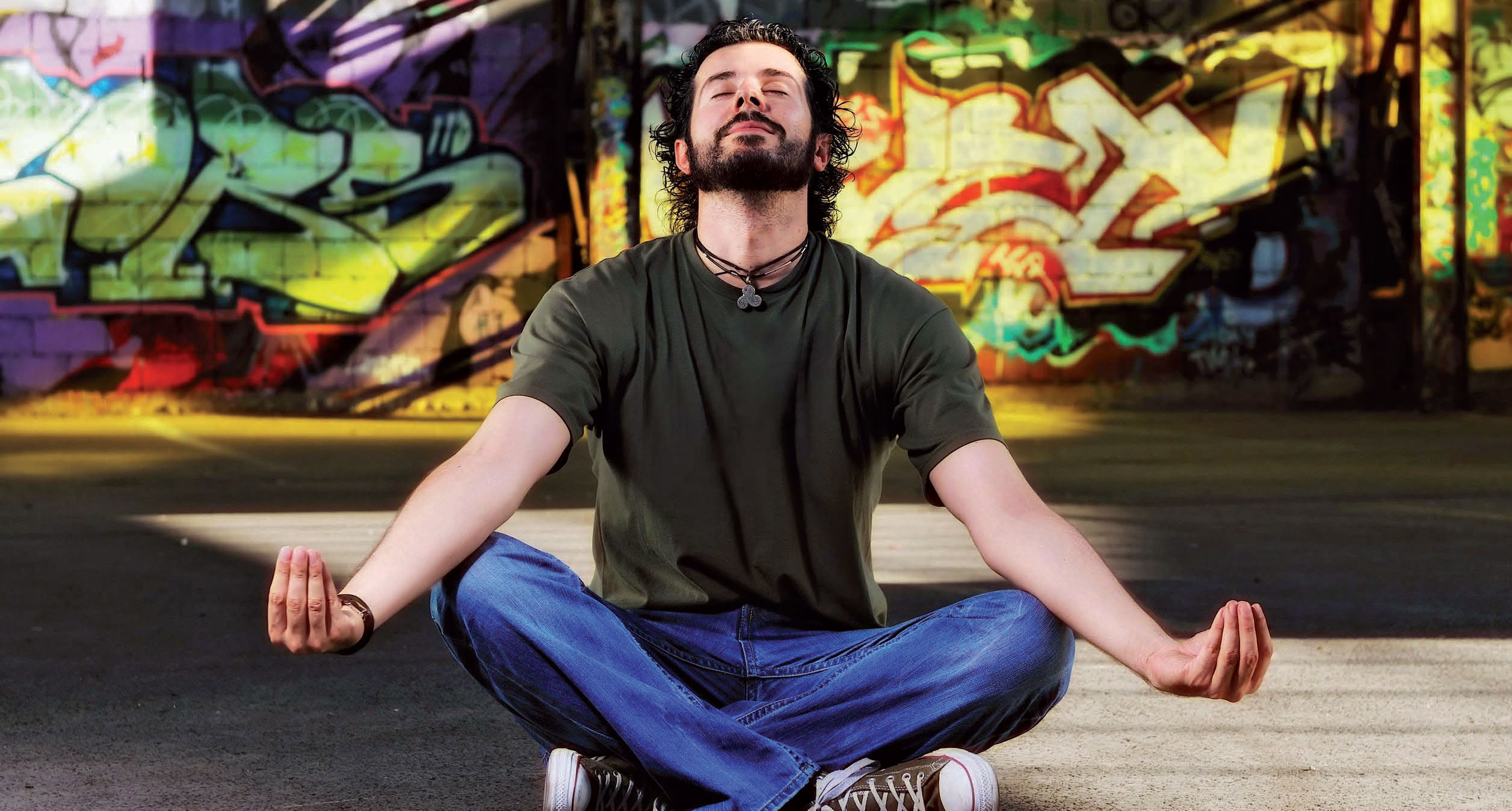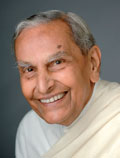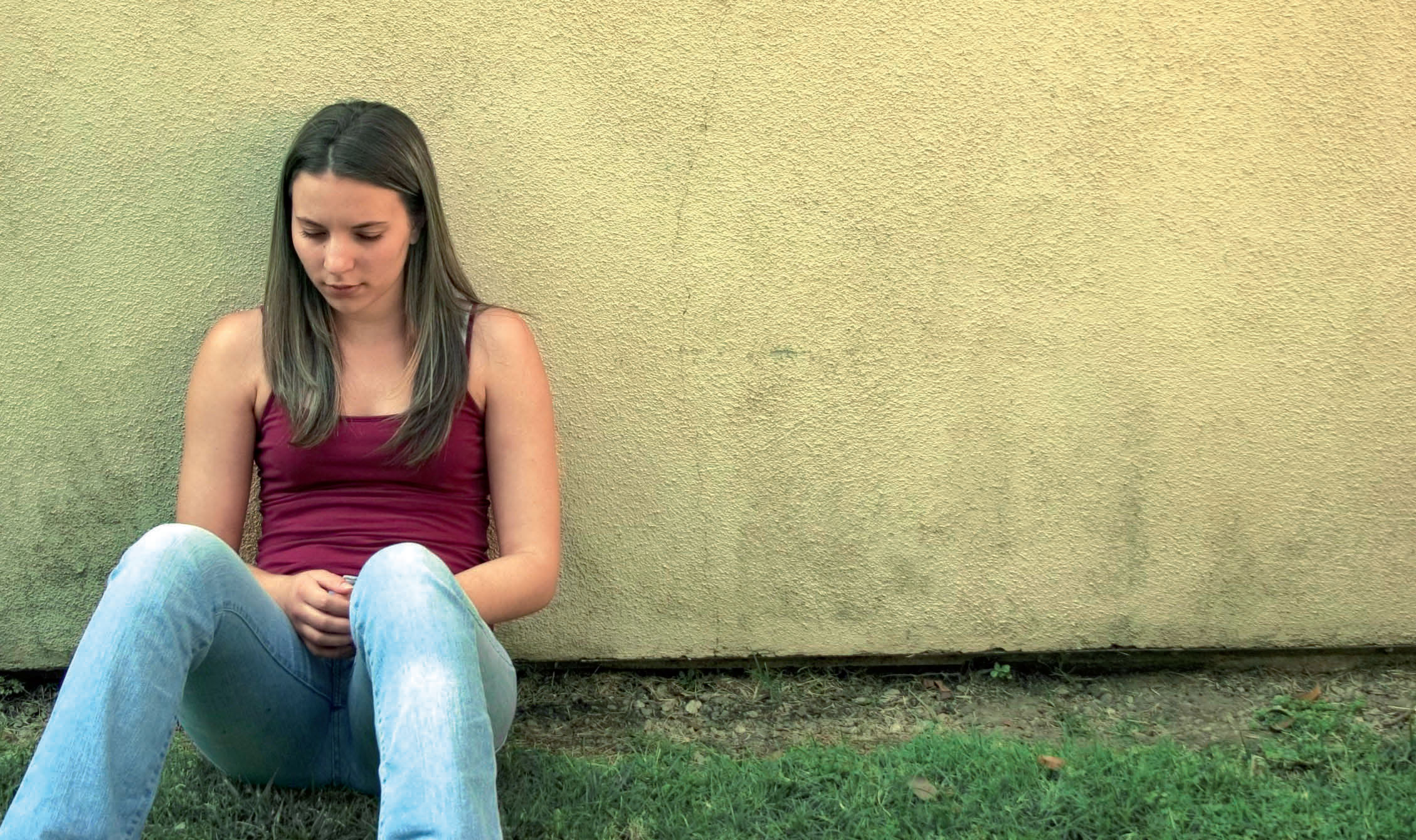Why is it that the vast majority of us live perpetually in fear of something or the other? Perhaps, one reason is that we are lonely. The deepest tragedy of the modern man is his loneliness. In spite of an ever increasing number of clubs and cinemas, museum and parks, hotels and restaurants, at heart we feel so lonely. A distinguished visitor to America was taken to a big cinema house. Throngs of people stood in rows awaiting their turn to get a ticket. Asked for his opinion, the distinguished visitor said, “The Americans must be very lonely at heart: else there would not be such a rush at cinema houses!”
Yes if we will confess the truth to ourselves we will not deny that we feel lonely. We lack the security of protection. We are like the child who, taken to a fair, lost its mother in the crowd. With this difference – that the child filled the air with its cries for the mother, “Ma! Ma!” But we have forgotten even to cry for her. We are like the orphan who was never tired of complaining that there was no one to care for him in this big, boisterous world. It is this sense of loneliness that leads to a feeling of frustration and so many of us do not find it worthwhile to live in the world. Not long ago, a multi-millionaire brought an end to his life after leaving a brief note on his writing table: “I feel lonely. I can live no longer. I kill myself!”
Life has become a burden to untold millions. Only a few commit suicide. The rest die what are regarded as natural deaths but which are, in any case, too premature. So many feel lonely; and loneliness sits as a heavy burden on the heart, sapping its strength, eating into its vitals. Heart disease is on the rise. Hypertension has become a common ailment. Nervous breakdowns take a heavy toll. A heart specialist said to me only last evening, “Not a day passes that I am called to the bedside of a dying heart patient. It was not so a few years ago.”
We feel lonely; we feel lost; we feel abandoned; we feel forsaken and forlorn. Again and again, we lose the sense of security which belongs to us as children of God; we fall into the abyss of fear.
I can never forget the sweet, serene face of a child I saw many years ago. I was on board the S.S. Versova, traveling from Bombay to Karachi. Suddenly, a terrible storm arose. Thick clouds appeared in the skies, covering the face of the sun, and the day became as dark as night. Huge waves lashed against the steamer which tossed about as a paper boat. All the passengers were filled with terror. It looked as though we were doomed to a watery grave. In the midst of this sorrowful scene sat a little child – barely six years old – calm, serene, undisturbed by the shrieking storm and the rolling waves.
I was, then, about ten years of age and I marveled at this child’s unruffled serenity in the face of death. I said to him, “The steamer is about to sink: are you not afraid?”
With a cherubic smile he answered, “What have I to fear when my mother is so near?”
I can never forget those words. When in the depths of despair and sorrow I have repeated those words to myself, repeated them again and again, and I have felt relieved…“What have I to fear when my Mother is so near?”

Our Mother – the Divine Mother – is so near to each one of us. Closer is She than our breath and nearer than our own hands and feet. Alas! We have turned our faces away from Her. In our shouts and shows, our engagements and occupations, our business and commerce, we have forgotten Her. We have lost the childlike spirit. To be childlike is to renounce criticism, to rejoice in life, to share all we have with all men, to love and laugh. We think we have grown up and no longer need Mother’s loving care. We need to become children again, friendly and loving towards all – not critical, not fearful. We need to contact Mother. This is done through meditation and prayer and constant repetition of Mother’s name. Writing the name, again and again, is a great help. To start with, it may appear laborious, but as concentration develops, writing the name becomes a source of indescribable joy. And as you keep on writing the name, again and again, one blessed day you lose yourself and you find the Divine Mother! This is all that matters.
It must be forgotten that it is impossible for me to find Mother through my own efforts and endeavors. It is only through Mother’s grace that She is found. On our part we must make an attempt to radiate thoughts of love to speak words of comfort, to live a life of service and sacrifice. “You are not lonely, O Arjuna!” says Sri Krishna to his beloved disciple in the Bhagavad Gita, “I am with you, within you, all around you. Whatever you eat,whatever you give, whatever you do, do it unto Me!” So may our wills be blended with the Divine Will. And in the measure in which our wills are blended with the will of God, in that measure do we grow into the likeness of God. Then we think as God would have us think; we speak and act as God would have us speak and act. Then it is that fear vanishes from our life as mist before the morning sun.
And we move through life trusting every ray of the sun and every drop of rain, every rose and every thorn, every stone and every grain of sand, every river and every rock, trusting the sun and moon and stars, trusting thunder and storm, trusting every thing and everyone, giving the service of love to all.
Significant are the words of Saint Francis, “Where there is compassion and wisdom there can be neither fear nor ignorance.” The secret of fearlessness is sympathy, compassion, and love for all. When love, unselfish love, enters into the heart, fear departs.
Purna is a devoted disciple of the Buddha. One day, as he sits in meditation, he gets an urge to go and spread the Master’s message among the wild people of Sronapranta. The plan appears preposterous to many of his fellow-bhikkhus. But Purna is a man of faith and he has no fear in his heart, which is filled with love and compassion for all who live in the darkness of ignorance.
Purna comes to the Buddha for his blessings. And the Buddha says to him, “Purna! You know so well that the people of Sronapranta are wild and ferocious. They insult and slander one another and are given to fits of anger. If they speak to you insultingly and abuse you and get angry with you, what will you do?”
“If they behave with me thus, Master,” says Purna, “I shall think them to be kind and friendly, since they do not beat or stone me.”
“And what if they beat or stone you?”
“Even then I shall think of them to be kind and friendly since they do not attack me with weapons.”
“And what,” asks the Buddha, “If they attack you with weapons?”
“Then, too,” answers Purna, “I shall think of them to be kind and friendly since they do not kill me.”
“And what if they kill you, Purna?”
And Purna says, “Even if they kill me, Master, I shall still think of them to be kind and friendly since they will have liberated me from the limitations of the body.”

The Buddha is well pleased with Purna. To him the Blessed One says, “Purna, you are gifted with the greatest gentleness and patience. You can go and dwell among the people of Sronapranta. Show to them the way to be free as you are free!”
Blessed was Purna. He was free; he was fearless. And he showed to many the way to be fearless and free. It is not the way of lusting after pleasure or of accumulating possessions or of acquiring earthly power. It is the way of knowing that we are very near and dear to God. “Are not five sparrows sold for two farthings?” asked Jesus. “And not one of them is forgotten in the sight of God. Fear not; ye are of more value than many sparrows.” It is the way of giving gratitude to God for all that happens, of being glad in all circumstances and rejoicing forever, singing the song: “The golden age is in my heart today.”
In the midst of poverty and privation, Saint Tukaram sang:
No food have I nor shelter:
A homeless wanderer I
Whom no child doth greet at
Eventide!
Yet there is none richer than I,
For I have all love and all joy.
I have God: His grace and His love
Fill me to overflowing!
Come poverty, come pain,
With God enthroned within my heart,
No ill can lay me low!
All things pass.
As a dream they come,
As a dream they go!
I dwell in deathless joy,
And I have no fear:
For I abide in Him,
And His immortal touch is on my soul!
 Dada J. P. Vaswani: Universally acclaimed as a humanitarian, philosopher, educator, writer, powerful orator and non-sectarian spiritual leader, Dada J. P. Vaswani has captivated the hearts of millions worldwide. He carries forward the spiritual legacy of his master Sadhu T. L. Vaswani. At 92, he is one of India’s greatly beloved and revered spiritual leaders. Dada is a firm believer in the universal religion of love, brotherhood and service to humanity. Dada is the spiritual head of Sadhu Vaswani Mission and the inspiring, life-giving force behind its many charitable services. Dada is the author of over 85 books in English and many of his books have been translated into various international languages. Dada’s writing reveals practical tips on happy, successful, spiritual and non-violent living. He is the recipient of Paul Harris Fellowship, Prani Mitra Award, U Thant Peace Award, and Sant Shri Dnyaneshwar World Peace Prize.
Dada J. P. Vaswani: Universally acclaimed as a humanitarian, philosopher, educator, writer, powerful orator and non-sectarian spiritual leader, Dada J. P. Vaswani has captivated the hearts of millions worldwide. He carries forward the spiritual legacy of his master Sadhu T. L. Vaswani. At 92, he is one of India’s greatly beloved and revered spiritual leaders. Dada is a firm believer in the universal religion of love, brotherhood and service to humanity. Dada is the spiritual head of Sadhu Vaswani Mission and the inspiring, life-giving force behind its many charitable services. Dada is the author of over 85 books in English and many of his books have been translated into various international languages. Dada’s writing reveals practical tips on happy, successful, spiritual and non-violent living. He is the recipient of Paul Harris Fellowship, Prani Mitra Award, U Thant Peace Award, and Sant Shri Dnyaneshwar World Peace Prize.




